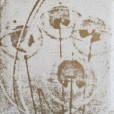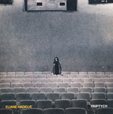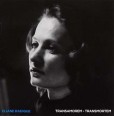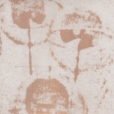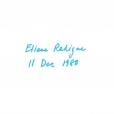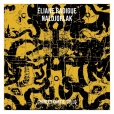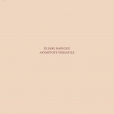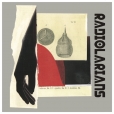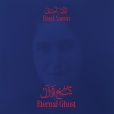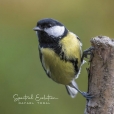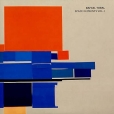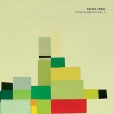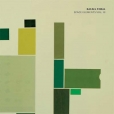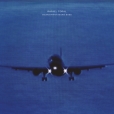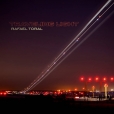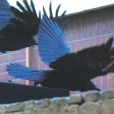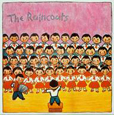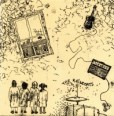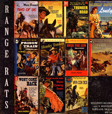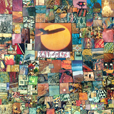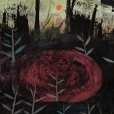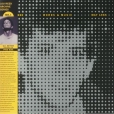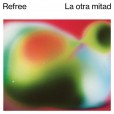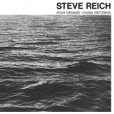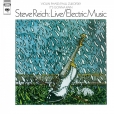Your basket is empty

‘Dave Cudlip’s debut album, inaugurating the highly promising, experimental label Klang Tone (spawn of the estimable Stroud record shop): a stunning and unique combination of ethereal ambient soundscapes, undulating rhythms, and atonal sound collage, with Harmonia and Autechre looming amongst its forebears.’
Two long-form pieces of modular minimalism. Both sides unfurl fifteen minutes of urgent, high-octane loops, repeating patterns, and distorted vocal frequencies, drawing on Terry Riley, Suicide, no wave and synth pop — not to mention the history of modern Lebanon. (Hush, hush.) Enter Ghost, a wonderful novel by Isabella Hammad, also comes to mind.
The return of Jim O’Rourke’s Moikai imprint, after an interlude of two decades.
‘Threading together twelve distinct episodes into a flowing whole, Spectral Evolution alternates moments of airy instrumental interplay with dense sonic mass, breaking up the pieces based on chord changes with ambient ‘Spaces’. At points reduced to almost a whisper, at other moments Toral’s electronics wail, squelch, and squeak like David Tudor’s live-electronic rainforest. Similarly, his use of the guitar encompasses an enormous dynamic and textural range, from chiming chords to expansive drones, from crystal clarity to fuzzy grit: on the beautiful Your Goodbye, his filtered, distorted soloing recalls Loren Connors in its emotive depth and wandering melodic sensibility…
‘Spectral Evolution is the quintessential album of guitar music from Rafael Toral.’
‘Sidesteps the traditional logic of how to play a song, moving outside the framework with which one would expect a standard to be treated. Three decades ago, in the early years, Toral used the guitar as a generator, to create discreet texture and droning tones. Later, he abandoned the guitar entirely, focusing on self-made electronics to render his music, and the silence from which it came, with a post-free jazz perspective. For the music of Spectral Evolution and Traveling Light, Toral has combined his methodologies, remaining ‘in the tradition’, even as the elongated harmonies seem to alter time and — says Toral — ‘the chords become events on their own.’ At points, the long tones evoke the sacred ennui of liturgic music, the choir or the organ standing in for silent contemplation while rumbling the ground beneath our feet. In addition to Toral’s guitars, sine wave, feedback and bass guitar, each track features clarinet, tenor saxophone, flügelhorn, and flute, by turn. One of Toral’s self-made devices incorporates a theremin to modulate feedback melodies. The spring of the old pours through the new in an unstoppable flow.’
Washed between industrial and devotional fronts, eight pluviophile excursions by Giuseppe Ielasi & Giovanni Civitenga, steeped in the manifold evocativeness of rainfall — how it orchestrates some of our deepest memories and fantasies.
‘Yesterday it started to rain…
‘The smell of damp tarmac rising up through open windows from a suburban pavement, a school playground, a basketball court…
‘The rain cut through a band of low pressure that had been lying over the city for days, pinging rhythmically off metal, causing rolling tyres to hiss and spit.
‘Its soundtrack is the debut full length from Rain Text, run through with build-ups of low-end pressure relieved by the fizz and clatter of metallic rhythms…
‘Static… discord… release…’
Country punk from 1985.
Brecht Ameel playing prepared harmonium and celesta, alongside Kim Delcour modulating air and breath via various wind and reed instruments; joined by Will Guthrie on tuned and melodic percussion (timpani, glockenspiel, marimba, vibraphone), and Paul Garriau on hurdy-gurdy.
‘With a distinct rhythmic impetus and fluidity new to Razen, and characteristic freshness and playfulness, Regression relays between dire inhospitableness and refuge, abject sorrow and cosmic transcendence. It invokes mythology and superstition as keys to the primeval and the unknown.’
Stunning solo, acoustic demos of Pale Blue Eyes, I’m Waiting For The Man, Heroin and co.
‘If it is the radical edge of uncompromising hardcore minimalism that you are after, this reissue of Four Organs and Phase Patterns delivers two key examples.
‘‘I am interested in perceptible processes’ Reich had written in 1968. ‘I want to be able to hear the processes happening throughout the sounding music.’ Four Organs is a radical realisation of this goal. Against the steady rattle of maracas, individual tones within a single chord are gradually lengthened. No changes of pitch or timbre occur, and the drawn out nature of the process provoked outrage at some early performances, when audiences found themselves caught up in a decelerating loop, being dragged towards stasis. Phase Patterns, composed a month later, relies on a phasing technique developed during Reich’s earlier experiments with magnetic tape recordings, which he allowed to drift out of sync. Identical figures initially in unison shift out of phase, generating unexpected patterns.’
‘Obviously music should put all within listening range into a state of ecstasy’ (Steve Reich).
Vinyl from Aguirre.
It’s Gonna Rain is a total knockout.
Steve Reich’s first official piece is spun out of a chance encounter with a Pentecostalist preacher at work in San Francisco’s Union Square Park in 1964.
“He’s talking about the flood in the Bible and Noah and the ark, and you’ve got to remember the Cuban missile crisis was in ‘62, and this was something hanging over everyone’s head ... that we could be so much radioactive dust in the next day or two. So this seemed very appropriate…. There are two loops of his voice, starting in unison. And then one slowly creeps ahead of the other — I just did it with my thumb on the recording reel of one of the machines. And so they go out of phase. It’s like a canon or a round, like Row, Row, Row Your Boat. And you get first a kind of shaking, a reverberation, and then you get a sort of imitation and gradually you begin to hear it as a round. And that’s exactly what happens in this piece.”
Apocalyptic, riveting, banging, urgent, game-changing… it’s killer.
